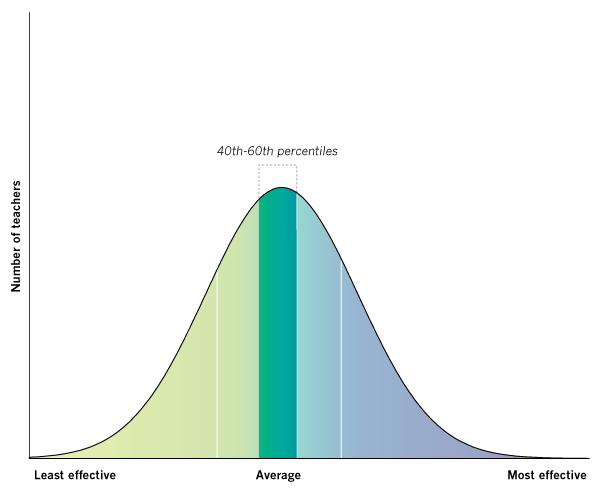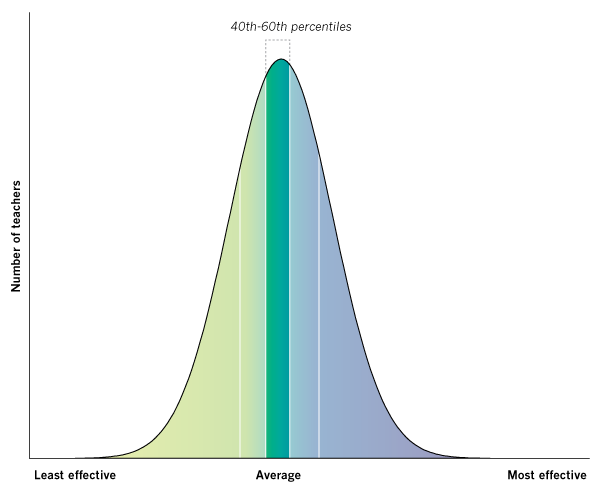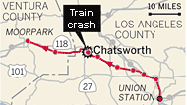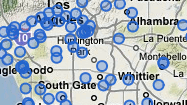Mark Lee Hummer
A 5th grade teacher at Micheltorena Street Elementary in 2009
These graphs show a teacher's "value-added" rating based on his or her students' progress on the California Standards Tests in math and English. The Times’ analysis used all valid student scores available for this teacher from the 2002-03 through 2008-09 academic years. The value-added scores reflect a teacher's effectiveness at raising standardized test scores and, as such, capture only one aspect of a teacher's work.
Compared with other Los Angeles Unified teachers on the value-added measure of test score improvement, Hummer ranked:
- Average overall.
- Average in math. Students of teachers in this category, on average, did not gain or lose significantly on the California Standards Test compared with other students at their grade level.
- Average in English. Students of teachers in this category, on average, did not gain or lose significantly on the California Standards Test compared with other students at their grade level.
Hummer's LAUSD teaching history
2002-03 through 2008-09 academic years
- Micheltorena Street Elementary, 2009 - 2003
Mark Hummer's Response:

Of course, any reflective professional must agree in principal with the concept of accountability; however, when it comes to education, that same reflective professional must recognize that accountability and how teacher effectiveness is assessed is a complex issue that should not be unfairly oversimplified. As a member of a highly collaborative learning community that routinely analyzes data to help drive instruction, I am not surprised by the rating reflected here. I am, and have always been aware of student performance on standardized testing and have used that information to inform and modify instructional practices in classrooms that invariably include a diverse population with a significant variety of needs, as is reflected in our various significant subgroups. And this is too why as a school we chose to focus on such areas as differentiating instruction and depth and complexity.
And too, there is no denying that Language Arts and Math are the cornerstones of education, and yet, if one is to "hold teachers accountable," one must understand that teachers frequently contribute to the overall learning environment in ways that may not be reflected in the test scores of the single classroom. In my case, I can give several examples. For instance, as Micheltorena's Science Lead Teacher, I help build teacher capacity in teaching science through professional developments that impact students school-wide. As chairperson of our School Site Council, I help facilitate a body that makes critical decisions regarding our funding and how to best utilize it for maximum impact on student achievement. And then there are the other responsibilities I have elected to take upon myself because I believe they provide many students, not necessarily just those in my classroom, with opportunities they might not otherwise have. I established and coordinated the relationship between Micheltorena and BookPals to help promote literacy and an appreciation of reading among students. And I also began recruiting students to submit articles to a local newspaper in order to give our school a voice in the community. And finally, as for "my" students, I know from what former students have later told me, they learned from me lessons about life and how to be a successful member of society that they may not have garnered from mere readin', ritin', and 'rithmatic.
Because I am serious about what I do, I will continue to look at the data, reflect on my teaching practice, and avail myself of the many opportunities for professional growth that will help me build my capacity. But in all honesty, I dread the day when perhaps my income may be adversely affected because teacher accountability will be based on an unfairly limited set of criteria.
![]() The Times gave LAUSD elementary school teachers rated in this database the opportunity to preview their value-added evaluations and publicly respond. Some issues raised by teachers may be addressed in the FAQ. Teachers who have not commented may do so by contacting The Times.
The Times gave LAUSD elementary school teachers rated in this database the opportunity to preview their value-added evaluations and publicly respond. Some issues raised by teachers may be addressed in the FAQ. Teachers who have not commented may do so by contacting The Times.
|
|
 Delicious
Delicious
|
 Digg
Digg
|
 Facebook
Facebook
|
 Twitter
Twitter
|









